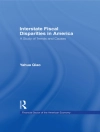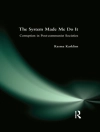By providing a unique combination of theories on the state, on territoriality and on governance, The Disoriented State explores the relationship between state governmentality and specific forms of policy making.
The Disoriented State begins with a theorisation of these new modes of territoriality, governmentality and governance by three prominent scholars in the field: Neil Brenner, Phil Cerny and Bob Jessop. This is followed by a series of in-depth case studies which manifest the variety as well the various forms of co-constitution between state governmentality, new modes of governance and policy-making, focusing on migration, spatial economic policy, city-marketing, urban development, water management and environmental policy.
Table of Content
Shifts in Governmentality, Territoriality and Governance: An Introduction.- States, Territories, Governance.- Neoliberalisation and Place: Deconstructing and Reconstructing Borders.- Urban Governance and the Production of New State Spaces in Western Europe, 1960–2000.- From Governance to Governance Failure and from Multi-level Governance to Multi-scalar Meta-governance.- Policy Practices.- Querying the Queue: A Review of the Literature on the Management of Borders and Migration in the European Union.- The Territoriality of Spatial-Economic Governance in Historical Perspective: The Case of The Netherlands.- Producing Urban (Dis)similarity: Entrepreneurial Governance, Consumer Mobility and Competitive Consumption Spaces: The Case of the Enschede Region.- A Narrative Understanding of an Entrepreneurial City: The Case of Tilburg.- River Basin Management in Europe: The ‘Up- and Downloading’ of a New Policy Discourse.- Environmental Governance Failure: The ‘Dark Side’ of an Essentially Optimistic Concept.- Conclusions.- The Disoriented State.












